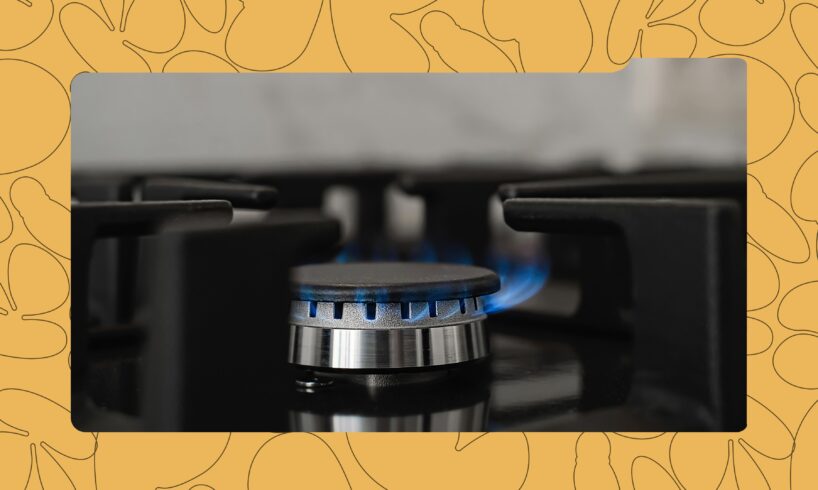
With the price of filling gas increasing lately, with no signs of it reducing anytime soon, many of us are becoming more conscious about how we use our cooking gas.
For most households in Nigeria, cooking gas refers to LPG (liquefied petroleum gas), which is commonly used to power gas cookers. It’s cleaner and faster than firewood or kerosene, but the prices of refilling them these days are skyrocketing, and it’s time to think smart and find ways to reduce how often you need a refill. If you’re looking for simple, practical ways to make your gas last longer, you’re in the right place.
Here are seven easy ways to reduce gas consumption at home without sacrificing the joy of a hot meal.
1. Cook in bulk
Instead of cooking multiple times a day or every single day, try batch cooking. Making a large pot of soup, stew, or jollof rice that can be stored and eaten over a few days will save you a lot of gas.
Think of it this way: every time you light the gas, you’re burning money, but if you cook once and portion it out, you’re being economical and efficient, which is a win-win situation.
In order to store food after bulk cooking, you’ll need storage containers. Get these 4-piece storage containers for ₦13,800 on Jumia.
READ ALSO: Can Your Phone Cause a Gas Explosion in The Kitchen? Here’s The Truth
2. Turn off the gas regulator when not in use
You see that little red or blue valve on the top of your cylinder or the regulator that connects it to the hose? That’s not just for show. Always turn it off after cooking. Even if there’s no visible leak, leaving it open can cause slow, unnoticed gas leakage over time, and you don’t want to be paying for gas you didn’t even cook with.
You can get this Smart Gas Regulator with Gauge that lets you monitor your gas level and helps you to avoid a surprise empty cylinder. Price: ₦13,000. Where To Buy: Shop Zit.
3. Match pot size to burner size
Using a small pot on a big burner is like using an umbrella in a hurricane; it’s pointless and wasteful. Make sure your pot properly covers the flame. When the pot is too small for the burner, a lot of heat escapes around the sides instead of going directly to the food. That’s wasted energy and wasted gas. Most gas cookers have multiple burners for a reason, so use the smaller ones for smaller pots and reserve the big ones for big pots or cooking in bulk.
Get these 6-piece enamelled casserole pots for ₦511,000 at Radiance Cookware. Thicker pots retain heat longer and cook food more evenly. They come in handy for saving gas and preventing food from burning.
4. Pre-soak food before cooking
Foods like beans, dry maize, and even some types of yam or plantain benefit from being soaked before you cook them. It softens them and reduces the time (and gas) needed to cook them. Even rice can benefit from a 10 – 15 minute soak. You’ll be surprised how much time you save off the stove.
READ ALSO: Make Your Gelato At Home With These 7 Best Ice Cream Makers
5. Prepare everything before turning on the flame
This might sound obvious, but many people are guilty of turning on the gas before they even know what they’re making. Some people would’ve already turned the gas on and placed the pot on fire before they start whisking their eggs or slicing their onions.
Don’t let the flame burn while you’re still washing tomatoes or chopping onions. Prep everything first, then light the burner when you’re ready to cook. Gas isn’t free.
6. Use flat-bottomed pots with tight lids
The type of pots you use matters more than you’d think. Flat-bottomed pots sit more evenly on the burner, allowing heat to distribute properly. Tight lids trap steam and heat, helping food cook faster. Always cover your pots when cooking because uncovered pots waste heat and extend cooking time.
READ ALSO: These 5 Dish Racks Make Your Kitchen Look Cleaner, Cooler & Way More Organised
7. Cook on Medium Heat When Possible
High flame doesn’t always mean faster cooking. Sometimes, it just burns your food and gas together. Once your food starts boiling, reduce the flame to low or medium. It’ll simmer just fine, and your gas will last longer. Let the heat do the work, not the flame.
At the end of the day, saving gas is really about being intentional. With just a few habit changes, like prepping ahead to choosing the right cookware, you can stretch your gas supply and reduce how often you have to refill.
In this economy, anything that helps you save money without compromising on your meals is worth trying.




